 |
| Download pdf file | Newsletter archives | |||
| Dieser Newsletter auf Deutsch | Cette newsletter en français | |||
 |
1. EU to tackle social dumping |
 |
|
European Pillar of Social Rights proclaimed
Twenty years after the first and only Social Summit held in Luxembourg, all 28 EU member states have now committed to common minimum standards, including fair wages, unemployment benefits and decent pensions. However they wish to maintain national sovereignty in social matters and only transfer minimum competencies to the EU. As a pure proclamation, the EPSR is not legally binding and does not provide for any sanctions. It was not expected to represent anything more than a starting point for further initiatives. Trade unions are however demanding concrete legislative measures and had launched the "Social Rights First" campaign in the run-up to the Summit.
Social Summit concluding report "Social Rights First" campaign Hans Böckler Foundation's analysis of EPSR
While nearly all EU heads of state and government were present in Gothenburg, Angela Merkel was missing. The German Chancellor was busy with exploratory discussions to form a new government and even refused to send the acting minister of labour as a replacement. Germany also has its foot on the brakes in other matters: the Council of Europe's revised Social Charter from1996 has not yet been ratified. It would have a direct effect on German labour legislation, e.g. in mandatory anti-discrimination law. German strike rights which are strongly regulated in comparison to the rest of Europe, particularly for civil-servants are also in contradiction with the Social Charter.
Which countries have ratified the European Social Charter? Background report on resistance in Germany
Agreement on new Posting of Workers Directive
Minimum standards such as the payment of the respective minimum wage already apply today. In the future universally binding collective agreements must also be respected in all industries. There are also provisions for equal treatment between temporary and local workers, including bonuses, allowances and bad weather compensation for building workers. The employer must bear any costs for travel, accommodation and catering. Up to now these costs were often deducted from the wages, particularly in the meat and construction industries. In the future, workers are to be posted for no longer than twelve months, extendable however to 18 months. The road haulage sector has been excluded for the moment. The reform will only enter into force after a four year transition phase, which the trade unions criticize as being unusually long.
According to the European Commission there are currently two million posted workers in the EU. Germany, France and Belgium are the most concerned (as host countries), whereas Poland sends nearly one-half million workers abroad. The draft for reforming the Directive submitted by the European Commission in March 2016, was met with resistance from Eastern Europe. It was feared that Western European states were seeking to protect their job markets (see report in EWC News 3/2016). Hence Hungary, Lithuania, Latvia and Poland rejected the compromise during the vote in the Council of Ministers. Britain, Ireland and Croatia abstained over concerns for protecting their transport sectors.
European press presentation on the topic Full text of Posted Workers' Directive
Forthcoming event
A seminar on this topic is being held from 23 to 25 October 2018 in Berlin.
|
 |
2. Brexit looking more and more unlikely |
 |
|
Most difficult phase of the negotiations can now begin
A transition period from March 2019 to December 2020
When the United Kingdom withdraws from the EU, the customs union and the single market on 29 March 2019, the status quo will at first not change. The country must continue to abide by EU law (including the freedom of movement of workers) and comply with rulings of the European Court of Justice. This will also include new legislation passed during the transition period. At the same time, the country will lose its seats on the Commission, the Council of Europe and in Parliament. To a large extent, this corresponds to the current status of Norway. Furthermore, the Directives on the European works council and the SE will remain in force up to the end of the transition period.
After the end of the transition period starting in January 2021
Negotiations on the future trade relations are to start in March 2018. The EU is currently working on guidelines and is waiting for the British government to define more exactly what it means by a "deep and special partnership" (which they have not done so far). From the EU's viewpoint, Britain cannot have the same benefits as a member after the Brexit.
Will Northern Ireland save the British from Brexit?
Full text of agreement provisions
In the end, either Northern Ireland would remain in the single market creating a hard border across the Irish Sea, or the whole of the United Kingdom would have to actually abandon the Brexit. If Northern Ireland were given a special status, the governments of Scotland and Wales would also demand a special status and the mayor of Greater London has even already requested this. This would mean paying a high price for Brexit since in the end it would lead to the breakup of the United Kingdom.
Defeat in British Parliament
The UK government lost a crucial vote in the House of Commons on 13 December 2017 due to conservative party critics who sided with the opposition to back an amendment for a right of veto over the Brexit agreement. Now the government must go through a legislative procedure on the withdrawal bill. There is however no majority in Parliament for a certain form of Brexit. Without an approval from Parliament the Brexit would either be postponed or completely called off or otherwise - economically speaking - threaten a "fall off the cliff-edge".
Support for Brexit continues to crumble
Meanwhile, the opinion of the public has completely turned around. A public opinion poll on 17 December 2017 now shows that only 41% of the British endorse the Brexit and today the majority stands behind EU membership. This is the largest shift of opinion since the referendum in June 2016.
Press report on public opinion poll Further information on our special Brexit website |
 |
3. Corporate governance and codetermination |
 |
|
National Assembly discusses "codétermination à la française"
Following labour legislation (see report in EWC News 2/2017) ) and occupational training reforms, the third largest project of Emmanuel Macron's presidency is now on the agenda: a reform of corporate governance. On 15 October 2017, he announced as a guideline: companies are not just a collection of shareholders, but should take into consideration the interests of all stakeholders and the workforce. He wishes to expand profit-sharing, which has been mandatory by law in companies with 50 or more employees, since 1959 (see report in EWC News 2/2016). The discussions on reforming corporate governance are to start at the beginning of 2018. Numerous personalities had pleaded for more codetermination in a public appeal on 6 October 2017.
The appeal for more codetermination
Forthcoming event
The EWC Academy's 10th Hamburg conference will be held on 29 and 30 January 2018 with a focus on current developments in French labour legislation.
Codetermination remains merely cosmetic in Britain
It has now become clear, in the light of this public FRC consultation, that there will not be any initiative for legislation. The Corporate Governance Code will apply to all listed companies on a voluntary basis. Companies must however justify themselves if it is not respected. It provides for three options for employee participation. Either the board of directors designates one of its non-executive members to represent employees, to create an employee advisory council or to nominate a director from the workforce.
For the first time the code contains an obligation to report on gender balance on the board and in the first line of senior management. There is a new restraining threshold against excessive executive remuneration: if 20% of the shareholders vote against the executive board's remuneration plan, then it must publicly announce what actions it intends to take to settle the disagreement. The consultation on the new code is open for comments until 28 February 2018, after which it will presumably enter into force.
Full text of proposal for the new code |
 |
4. SE conversions restricting codetermination |
 |
|
Is avoidance of codetermination legally permissible in the media industry?
Eventually this "Tendenzschutz" will come to an end and future management boards will be subject to codetermination regulations since more and more business activities of the media industry are shifting to the internet in the course of their digitalization. An early SE conversion can still prevent this from happening. The Axel Springer media group used this special regulation in the course of its SE conversion in December 2013 (see report in EWC News 1/2014). The publishing house Hubert Burda Media is also currently preparing its SE conversion. If this court case succeeds, it could have consequences across the entire German media industry. The plaintiff is the same person who took legal action against the German tourism group, TUI, who however lost the case before the European Court of Justice in July 2017 (see report in EWC News 3/2017).
Full text of court filing (enter the following search term: 38 O 15760/17)
German furniture chain avoids codetermination on supervisory board
On 21 June 2017, the special negotiating body concluded a SE participation agreement which does not provide for any SE board-level employee representation. It merely establishes a SE employee committee, whose eleven members all come from Germany including one senior staff representative. A maximum of two additional seats are attributed should further countries be added. Germany may likewise have two further seats if the workforce increases in size. The SE employee committee is composed of a maximum of 15 members. They elect one chairperson and two deputies and hold two annual meetings. A three-member conciliation board is established to resolve disputes: each side has one representative, plus a neutral chairperson, whom both sides must agree to or who is appointed by the labour courts.
Trade unions lose case in fist instance against SAP
Central management would like to decrease the size of the parity-based supervisory board from 18 to twelve members, resulting in only six seats remaining for the employee bench. The two guaranteed trade union seats are to disappear. Even if external trade union candidates could continue to stand for election, they would however have to stand in competition with works council candidates in a general election organized for the entire German workforce (see report in EWC News 1/2017). Unions regard this as restriction to their codetermination rights, which is explicitly excluded by the SE Directive. The court case could go as far as the European Court of Justice since it concerns a matter of principle.
|
 |
5. Supervisory board participation without negotiations |
 |
|
Fireproof merger with one-third participation under Dutch jurisdiction
In Austria, one third of the seats on supervisory boards are attributed to works councils in companies with 300 employees or more. There is no full-parity codetermination such as in Germany. One-third participation continues to apply for the new management board of RHI-Magnesita giving six out of the 17 seats for the employee side. Previously there were four employee representatives from Austria on the supervisory board, whereas now six EU member states have one seat each. Unlike a SE conversion, the establishment of a special negotiating body can be avoided by applying the EU Merger Directive. The management board of RHI consequently decided not to enter into negotiations with the employee side and to directly implement the default regulations. As previously, the group is managed out of Vienna, but has relocated its legal headquarters to Arnhem. The Netherlands is a preferred location for foreign holding companies (see report in EWC News 4/2013).
Up to now, the Merger Directive has been relatively rarely utilized. The first company was the insurance company Münchener Rück, in April 2009 (see report in EWC News 2/2009). This Directive regulates only participation on the supervisory or administrative boards and fails to address the topic of European or SE works councils. The "normal" EWC Directive therefore applies to RHI-Magnesita. Whereas Magnesita still had no EWC, there has already been a "voluntary" EWC agreement in place for RHI since September 1996. According to article 13 of the EWC Directive, the merger now offers the opportunity for putting in place a special negotiating body to establish a new EWC for the entire company up to the latest standards.
Full text of RHI merger plan (see from page 90 on) Full text of EU Merger Directive |
 |
6. EWC established without proper elections |
 |
|
No court ruling on the subject in legal dispute in London
The events at Manpower raise a whole series of fundamental legal questions across the landscape of European works councils. The request to establish the EWC was made in May 2013. French unions took legal action since management had not taken any steps to convene a special negotiating body within the legal deadline of six months. France is the country with the largest number of Manpower employees in the EU. The Paris regional court nevertheless rejected the filing in July 2014, on the grounds that the UK subsidiary was competent and not the French (see report in EWC News 2/2014).
Legal deadlines repeatedly ignored
A EWC should have been established already back in December 2013, on the basis of the subsidiary requirements of British EWC legislation. Labour courts in Berlin ruled along these lines in a similar case for the US Company Groupon, in July 2016 (see report in EWC News 3/2016). Instead, Manpower's central management convened the constitutional meeting of the special negotiating body (SNB) on 4 September 2014 in London, 15 months after the request had been filed. Negotiations then dragged on without a resolution and the legally defined term of office for the SNB expired on 3 June 2016. A default EWC should have been established at the latest on this date. All members would have to be newly elected and subsequently have the right to sign a EWC agreement later on, if they so wished. The European Trade Union Confederation (ETUC) had explicitly highlighted this issue in a position paper on 16 March 2017 (see report in EWC News 1/2017).
The Manpower SNB however simply continued to negotiate and signed a EWC agreement on 13 March 2017, nine months after the end of its term of office. The SNB members then appointed themselves as EWC members, without new elections and for a period of four years. Elections were only held in those countries, where the respective national legislation explicitly required them. Since the two British trade union candidates from Unite were not successful in SNB elections in 2014, they are now excluded from cooperating on the European level for a further four years. The CAC rejected the complaint for formal reasons, on grounds that an individual was not competent to institute proceedings. The issue of whether an SNB may extend its term of office on its own initiative played an important role during the proceedings but the CAC did not make a ruling on this.
Power politics and Non Compliance
Whereas the SE Directive explicitly provides the possibility of extending the SNB's term of office, this is not foreseen in the EWC Directive. Manpower's central management had presumably put considerable pressure on the SNB members for them to help cover up the legal errors of management. They had to sign a strict non-disclosure agreement. They did not receive anything in return for this, since in some parts, the EWC agreement lies even below standards of the subsidiary requirements. The case became known to the general public since the CAC published a lot of details on the Internet, as is usual in such court cases. The new EWC finally held its constitutional meeting in Amsterdam from 14 to 17 November 2017.
Forthcoming event
Works council members need to be fully aware of the legal situation in order to avoid such problems. The EWC Academy organizes a legal workshop on EWC law once every year. The next scheduled date is 23 to 26 October 2018 in Berlin.
|
 |
7. Newly established European works councils |
 |
|
German electronics manufacturer establishes European divisional works council
The majority of the provisions in the EWC agreement conform to today's minimum standards since it was elaborated by a special negotiating body (SNB) and therefore fully subject to the new EU Directive. It provides for one annual plenary meeting. The five members of the steering committee meet once per year and can communicate with one another regularly by telephone or video conference. Extraordinary meetings are held for any restructuring. No measures are implemented in any country until consultations with the EWC have been finalized. However, as opposed to the EU Directive, there are fixed deadlines for Kostal: five weeks for the EWC to render its opinion and four further weeks for central management to reply. In particularly urgent cases these deadlines may also be shortened, providing the EWC does not have serious arguments against this.
Unlike in German works councils, the passing of resolutions does not require physical meetings and can be made in written form by circulation to the members. Each EWC member has the right of access to all sites in his country and informs the local works councils. The EWC may commission an expert, one for each subject of consultation. The time-off work for EWC members is not added to national allowances (e.g. in France or Spain).The EWC can establish its own working groups.
Swiss technology group establishes EWC under German jurisdiction A EWC agreement was signed for OC Oerlikon on 4 July 2017 at their headquarters in Freienbach on Lake Zurich. The group has 14,000 employees worldwide and produces coatings for vehicles and aviation as well as gearboxes for industrial applications. The headquarters has only 80 employees, but is able to benefit from very low corporate taxes. Over the last few years Freienbach has developed into one of the most important financial centres in Switzerland and is the world's third largest centre for hedge funds after New York and Shanghai. A Russian oligarch who has numerous investments in traditional Swiss businesses is Oerlikon's largest shareholder and has been involved in several corporate criminal cases. He continues to claim today that he still believes in communism.
The agreement provides for a "European Forum" covering all EU member states and Switzerland. It was negotiated by a special negotiating body and is subject to German EWC legislation. Some of the provisions are however less favourable than those in the EU Directive's subsidiary requirements. The steering committee for example has only three and not five members. It only holds meetings in exceptional circumstances, if more than 100 employees are affected by restructuring. On the other hand, the EU Directive does not define any threshold, nor does it mention any minimum number of meetings for the steering committee. It must benefit from conditions "enabling it to exercise its activities on a regular basis".
Resolutions may be passed without meetings in written form by circulation. However, telephone and video conferences are only possible for Oerlikon after approval by the EWC members. A duration for the consultation procedure has not been fixed, but the right for the EWC to apply for injunction to temporarily prevent central management from implementing measures, has been explicitly excluded. The same restrictions can be found in the SE participation agreement of the Swiss banking giant UBS and are most probably in violation of EU law (see report in EWC News 1/2017).
Italian Petroleum Company establishes EWC
A plenary meeting is held each year in conjunction with a training. The 22 EWC members are accompanied by four observers: one union officer from each of the three Italian Confederations and one from the European industrial trade union (industriALL). There is only simultaneous interpretation in English, Italian and French. The four-member select committee normally meets only once per year, and the meeting can also be held by video conference. There are provisions for extraordinary meetings in exceptional circumstances. A secretariat is provided at the group's headquarters to ensure the day-to-day organization of the EWC. The commissioning of experts is possible after an agreement is reached on a budget with central management.
Interview with an employee representative before the EWC was established |
 |
8. Revised EWC agreements |
 |
|
French group works council merges with EWC
The "Extended Rio Tinto European Group Works Council" under the abbreviation C3E, has eight members, including five from France. A further six French representatives have been added as a replacement for the dissolved group works council. They meet twice annually under the chairmanship of the European HR manager and elect an executive committee of five employee representatives. These also meet twice annually with central management. The C3E appoints an accountant and may hire additional experts for on-going consultation procedures. Each representative may participate in external seminars for up to three days per year.
Deadlines for consultation procedures
Extraordinary meetings are held if more than 30% of the European workforce is affected by measures. The executive committee holds an extraordinary meeting should only 10% be affected in two countries or 20% in one. All documents are communicated in English and French ten days prior to meetings. Video conferences are possible, but only after approval of both parties. The EWC is under a considerable time pressure, since it must render its opinion at the latest 15 days before the end of the legal consultation deadlines for local or national works councils. In the worst case the procedure is limited to two weeks.
French petroleum group establishes fourth Divisional works council
The world's fourth largest petroleum group has 100,000 employees, including 34,000 in France and 20,000 in other EU member states. The size of the European works council has been increased from 46 to 52 members. They come from 15 countries, including 26 from France, four from Belgium and three each from Germany and Poland. Despite the Brexit, the United Kingdom continues to be represented with two members up to the end of the EWC's term of office in 2021. In addition there are representatives of central management who also chair the meetings.
Extensive support from experts
The steering committee ("Comité Opérationnel Européen") is also chaired by the employer, with 21 delegates representing the employees. Five ordinary meetings are held per year as well as extraordinary meetings for consultation procedures in exceptional circumstances. Apart from the time for meetings, all 21 representatives have a right to four days' time-off work per year and to two trips abroad, e.g. for European trade union meetings in Brussels. At the beginning of the term of office, the EWC commissions an accountant as permanent advisor, and the steering committee may also appoint further experts for restructuring. Besides language courses, each EWC member has a right to five days training and an additional two days in their first term of office. Furthermore, the employee representatives receive an annual budget of 28,000 € for the translation of internal documents. All other costs are borne directly by central management.
|
 |
9. The view beyond Europe |
 |
|
International occupational health and safety committee visits US steel plant
French engine manufacturer concludes exemplary agreement
Safran has committed itself to sustainable development, to recognize independent trade unions and elected works councils and to combat all forms of discrimination in all subsidiaries around the globe. The agreement sets out a series of measures on occupational health and safety and suggests that the remuneration for top management should not prejudice "the social harmony within the company". Tax should always be paid in those countries where value has been added. Safran's European works council established in 2008 also participated in negotiations (see report in EWC News 3/2008). There are already other social agreements on a European level for career and skills development as well as for the professional integration of youth (see report in EWC News 1/2015).
Interview with Safran's EWC chairwoman (scroll down in left column) Full text of framework agreement
Regulating the future world of work
Report on the release of policy papers Principles for workers' data protection Principles for ethical artificial intelligence |
 |
10. Interesting websites |
 |
|
Collective agreements and labour legislation in all 28 EU Member States
Workplace skills development in Britain
In 1998, the labour government at the time, launched a fund to promote skills development in the workplace. This also included measures for equal treatment and inclusion of those particularly disadvantaged on the job market, promotion of workplace training, support for English courses (e.g. for migrants) and the development of infrastructures for on-the-job training. The "Union Learning Fund" is administered by Unionlearn which is a sort of "union-based training organisation" with its headquarters in the TUC's head office in London and branch offices in all parts of the country.
Austrian campaign for tax justice
Latest news from the working world in Denmark
The trade union confederation LO, which organizes blue collar workers in Denmark with 1.1 million members, publishes a newsletter in English every two months. It takes a look at labour relations and legislation, social policy as well as important court rulings in Denmark and EU issues from a Danish point of view.
Newsletter archives and online order Trade union confederation LO self-introduction |
 |
11. New publications |
 |
 |
12. The EWC Academy: Examples of our work |
 |
|
Anniversary cake for Swiss insurance company
Data protection in US automobile supplier
Hedge fund takes over retail office supplies group |
 |
13. Current seminar schedule |
 |
|
The EWC Academy and its forerunner organization have been holding conferences and seminars for the members of European works councils, SE works councils and special negotiating bodies since January 2009. So far, 746 employee representatives from 268 companies have taken part including many of them for several times. This represents around 21% of all transnational works councils in Europe. In addition there are numerous in-house events and guest lectures for other organizations.
Overview of the forthcoming seminar dates
10th Hamburg conference for European and SE works councils
Current trends in the EWC landscape with practical examples as well as the current situation in France following presidential elections
Short seminar on employee representation in France or short seminar on the new EU General Data Protection Regulation (optional)
Flashback: report on the Hamburg conference in 2012
Seminar on new EU General Data Protection Regulation
EWC and SE seminars in Montabaur Castle
Flashback: report on this seminar in 2012
In-house events
|
 |
14. Imprint |
 |
|
EWC-News is published by:
|
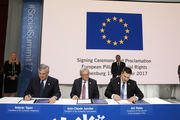 On 17 November 2017, the "European Pillar of Social Rights" (EPSR) was signed by representatives of the European Parliament, the European Commission and the Council of the European Union at a Social Summit held in Gothenburg. It sets out twenty principles to support fair, well-functioning labour markets and welfare systems and should serve as a "compass for better working and living conditions within EU member states". Member states are obliged to report regularly on progress made on the Pillar's rights and principles.
On 17 November 2017, the "European Pillar of Social Rights" (EPSR) was signed by representatives of the European Parliament, the European Commission and the Council of the European Union at a Social Summit held in Gothenburg. It sets out twenty principles to support fair, well-functioning labour markets and welfare systems and should serve as a "compass for better working and living conditions within EU member states". Member states are obliged to report regularly on progress made on the Pillar's rights and principles. Nurses and harvest pickers from Poland, building workers from Romania and butchers from Bulgaria have already been working for years in western EU member states for low wages. This is now set to change. On 23 October 2017, the Ministers for Social affairs agreed on the principles for revising the Directive on the transnational posting of workers to other EU countries from 1996. Negotiations on the wording of the text are to begin soon with the European Parliament.
Nurses and harvest pickers from Poland, building workers from Romania and butchers from Bulgaria have already been working for years in western EU member states for low wages. This is now set to change. On 23 October 2017, the Ministers for Social affairs agreed on the principles for revising the Directive on the transnational posting of workers to other EU countries from 1996. Negotiations on the wording of the text are to begin soon with the European Parliament.
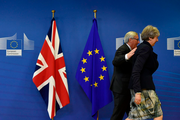 The heads of state and government approved the start of negotiations on future trade relations between the United Kingdom and the EU at the summit held on 15 December 2017 in Brussels. Prior to this, an agreement was concluded with the UK government on 8 December 2017, fulfilling three main requirements: the exit bill amounting to around 45 billion €, guarantees for the rights of EU citizens living in Britain and to avoid a hard-border in Northern Ireland. In the coming weeks there will first be negotiations on a transition phase.
The heads of state and government approved the start of negotiations on future trade relations between the United Kingdom and the EU at the summit held on 15 December 2017 in Brussels. Prior to this, an agreement was concluded with the UK government on 8 December 2017, fulfilling three main requirements: the exit bill amounting to around 45 billion €, guarantees for the rights of EU citizens living in Britain and to avoid a hard-border in Northern Ireland. In the coming weeks there will first be negotiations on a transition phase. In the agreement from 8 December 2017, the British government guaranteed that the Irish border will remain open and that every citizen of Northern Ireland may apply for EU citizenship. If there is no final deal on a trade agreement with the EU, Theresa May has promised "full alignment" with the rules of the internal market and customs union to avoid a hard border. How this is to function, still remains unclear.
In the agreement from 8 December 2017, the British government guaranteed that the Irish border will remain open and that every citizen of Northern Ireland may apply for EU citizenship. If there is no final deal on a trade agreement with the EU, Theresa May has promised "full alignment" with the rules of the internal market and customs union to avoid a hard border. How this is to function, still remains unclear. The social-democratic parliamentary group "Nouvelle Gauche" introduced a bill in parliament on 29 November 2017 which aims at reinforcing the presence of employee representatives on the administrative boards in French companies. In the future two employee representatives should have seats on the board in companies with 500 employees or more, one third of the board with 1.000 or more and one half starting from 5.000. This would fall slightly below German standards, but would nevertheless surpass the one-third participation in Austria. The bill was principally drafted by Dominique Potier, MP from Lorraine and is scheduled on the National Assembly's agenda for 18 January 2018. As an opposition party, the Nouvelle Gauche is seeking to influence the forthcoming debate on corporate governance at an early stage. Since 2015, French private companies with 1.000 employees or more must include employee representatives on the administrative board (see
The social-democratic parliamentary group "Nouvelle Gauche" introduced a bill in parliament on 29 November 2017 which aims at reinforcing the presence of employee representatives on the administrative boards in French companies. In the future two employee representatives should have seats on the board in companies with 500 employees or more, one third of the board with 1.000 or more and one half starting from 5.000. This would fall slightly below German standards, but would nevertheless surpass the one-third participation in Austria. The bill was principally drafted by Dominique Potier, MP from Lorraine and is scheduled on the National Assembly's agenda for 18 January 2018. As an opposition party, the Nouvelle Gauche is seeking to influence the forthcoming debate on corporate governance at an early stage. Since 2015, French private companies with 1.000 employees or more must include employee representatives on the administrative board (see  On 5 December 2017 the Financial Reporting Council (FRC), a semi-public authority for standardized financial reporting, published a proposal for a revised British Corporate Governance Code. This also tackles the question of how the voice of workers' interests could be better heard. During the election campaign for party leadership in July 2016, Prime Minister Theresa May had promised to include employee representatives on British company executive boards in the future. In November 2016, when the government released its "green paper" on the subject, there was nothing more to be seen about it (see
On 5 December 2017 the Financial Reporting Council (FRC), a semi-public authority for standardized financial reporting, published a proposal for a revised British Corporate Governance Code. This also tackles the question of how the voice of workers' interests could be better heard. During the election campaign for party leadership in July 2016, Prime Minister Theresa May had promised to include employee representatives on British company executive boards in the future. In November 2016, when the government released its "green paper" on the subject, there was nothing more to be seen about it (see  A small shareholder of the ProSiebenSat.1 media group filed legal proceedings before the Munich regional court on 1 November 2017. The applicant is challenging the incorrect composition of the supervisory board. In February 2015, as part of the SE participation agreement, the special negotiating body had to accept that the supervisory board remains permanently free of staff representatives, although the company in Germany has 5.000 employees. This was due to a special provision for the protection of enterprises in the field of politics, press, education, churches - so-called "Tendenzschutz" (see
A small shareholder of the ProSiebenSat.1 media group filed legal proceedings before the Munich regional court on 1 November 2017. The applicant is challenging the incorrect composition of the supervisory board. In February 2015, as part of the SE participation agreement, the special negotiating body had to accept that the supervisory board remains permanently free of staff representatives, although the company in Germany has 5.000 employees. This was due to a special provision for the protection of enterprises in the field of politics, press, education, churches - so-called "Tendenzschutz" (see 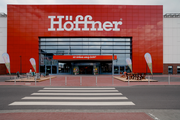 On 10 November 2017, the holding for the Höffner furniture stores, Möbel Kraft and Sconto cash-and-carry was registered at the Chamber of Commerce under the name Krieger Handel SE based in Schönefeld (near Berlin). The furniture chain owned by the Krieger family ranks third in Germany after Ikea and XXXLutz. It has around 11,500 employees throughout Europe. Locations outside of Germany, in particular in Czechia and Slovakia, have not yet been included in the SE conversion.
On 10 November 2017, the holding for the Höffner furniture stores, Möbel Kraft and Sconto cash-and-carry was registered at the Chamber of Commerce under the name Krieger Handel SE based in Schönefeld (near Berlin). The furniture chain owned by the Krieger family ranks third in Germany after Ikea and XXXLutz. It has around 11,500 employees throughout Europe. Locations outside of Germany, in particular in Czechia and Slovakia, have not yet been included in the SE conversion.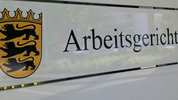 On 7 December 2017, the local labour court in Mannheim ruled on a complaint filed by the IG Metall and ver.di trade unions who were seeking to preserve their seats on the supervisory board of SAP, the software group. The SE participation agreement which was concluded in March 2014, guarantees them two seats on the supervisory board, as was the case before the SE conversion and in accordance with German codetermination law (see
On 7 December 2017, the local labour court in Mannheim ruled on a complaint filed by the IG Metall and ver.di trade unions who were seeking to preserve their seats on the supervisory board of SAP, the software group. The SE participation agreement which was concluded in March 2014, guarantees them two seats on the supervisory board, as was the case before the SE conversion and in accordance with German codetermination law (see  The Austrian group RHI took over its Brazilian competitor Magnesita on 26 October 2017. The new group is now the world market leader in the manufacturer of fireproof materials. Both groups were approximately equivalent in size and each brought 7,500 employees worldwide into the merger. This was carried out according to EU Merger Directive regulations, which guarantees supervisory board employee codetermination if it has already been in practice for at least one third of the European workforce.
The Austrian group RHI took over its Brazilian competitor Magnesita on 26 October 2017. The new group is now the world market leader in the manufacturer of fireproof materials. Both groups were approximately equivalent in size and each brought 7,500 employees worldwide into the merger. This was carried out according to EU Merger Directive regulations, which guarantees supervisory board employee codetermination if it has already been in practice for at least one third of the European workforce.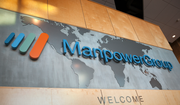 On 24 October 2017 the Central Arbitration Committee (CAC), dismissed a case on EWC matters against central management of the ManpowerGroup, in a first instance ruling in the United Kingdom. The chairman of the British employee representation had complained that his application as EWC candidate had been rejected. A EWC agreement had been concluded on 13 March 2017 and subsequently elections held in many countries but not in Britain.
On 24 October 2017 the Central Arbitration Committee (CAC), dismissed a case on EWC matters against central management of the ManpowerGroup, in a first instance ruling in the United Kingdom. The chairman of the British employee representation had complained that his application as EWC candidate had been rejected. A EWC agreement had been concluded on 13 March 2017 and subsequently elections held in many countries but not in Britain.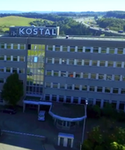 A EWC agreement was signed for the Kostal family business at their headquarters in Lüdenscheid on 26 June 2017. The group manufactures electronic components for the automobile industry and solar technology and has 17,000 employees worldwide. The new EWC only covers the automotive electronics division since the other divisions do not fall under the scope of the agreement. It has 16 members from nine countries, and seats are distributed strictly in accordance with the subsidiary requirements of the EWC Directive. Germany has four seats and Ireland, Spain, Czechia and Bulgaria two each. There are a further four countries with one representative each.
A EWC agreement was signed for the Kostal family business at their headquarters in Lüdenscheid on 26 June 2017. The group manufactures electronic components for the automobile industry and solar technology and has 17,000 employees worldwide. The new EWC only covers the automotive electronics division since the other divisions do not fall under the scope of the agreement. It has 16 members from nine countries, and seats are distributed strictly in accordance with the subsidiary requirements of the EWC Directive. Germany has four seats and Ireland, Spain, Czechia and Bulgaria two each. There are a further four countries with one representative each.
 A EWC agreement under Italian jurisdiction was concluded for Saipem on 17 July 2017, at their company headquarters in San Donato Milanese, a suburb of Milan. The group manufactures machines and drilling platforms and provides oil drilling and pipeline laying services. The European works council represents 10,000 employees in eleven EU member states and Norway. Italy, as the largest country, has 13 seats, followed by France with five. The remaining countries have altogether four seats.
A EWC agreement under Italian jurisdiction was concluded for Saipem on 17 July 2017, at their company headquarters in San Donato Milanese, a suburb of Milan. The group manufactures machines and drilling platforms and provides oil drilling and pipeline laying services. The European works council represents 10,000 employees in eleven EU member states and Norway. Italy, as the largest country, has 13 seats, followed by France with five. The remaining countries have altogether four seats. The Anglo-Australian mining and raw materials group, Rio Tinto, have had a EWC in place under French jurisdiction since 2008. The EWC body was transferred to them from the aluminium manufacturer, Alcan in the course of its acquisition (see
The Anglo-Australian mining and raw materials group, Rio Tinto, have had a EWC in place under French jurisdiction since 2008. The EWC body was transferred to them from the aluminium manufacturer, Alcan in the course of its acquisition (see 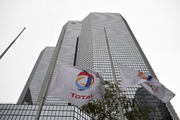 A revised EWC agreement for Total was signed on 30 June 2017 in La Défence, the Paris business district. It is an updated version of the agreement concluded on a voluntary basis with the trade unions in 1991 which is not subject to the EU Directive. The most recent major update was in October 2012 when the EWC was merged with the French Group works council (see
A revised EWC agreement for Total was signed on 30 June 2017 in La Défence, the Paris business district. It is an updated version of the agreement concluded on a voluntary basis with the trade unions in 1991 which is not subject to the EU Directive. The most recent major update was in October 2012 when the EWC was merged with the French Group works council (see 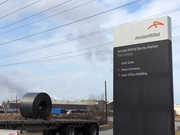 The occupational health and safety committee of ArcelorMittal held a meeting on 2 and 3 October 2017 in Burns Harbor on Lake Michigan (near Chicago), where the group has its second largest steel plant in the USA with 3,400 employees. It supplies the automobile industry in the region. The committee is based on an agreement concluded in June 2008 (see
The occupational health and safety committee of ArcelorMittal held a meeting on 2 and 3 October 2017 in Burns Harbor on Lake Michigan (near Chicago), where the group has its second largest steel plant in the USA with 3,400 employees. It supplies the automobile industry in the region. The committee is based on an agreement concluded in June 2008 (see  A framework agreement was signed in Paris on 18 October 2017 by central management of Safran and the global industrial trade union, industriALL. It covers all 58,000 employees in 30 countries around the globe and also applies to suppliers. The agreement is to be monitored by a committee financed by Safran, which is a sort of precursor to a world works council and meets twice annually. Besides management representatives there are ten trade union representatives from all parts of the world. It holds its meetings each time in different countries to evaluate conformance to the agreement locally.
A framework agreement was signed in Paris on 18 October 2017 by central management of Safran and the global industrial trade union, industriALL. It covers all 58,000 employees in 30 countries around the globe and also applies to suppliers. The agreement is to be monitored by a committee financed by Safran, which is a sort of precursor to a world works council and meets twice annually. Besides management representatives there are ten trade union representatives from all parts of the world. It holds its meetings each time in different countries to evaluate conformance to the agreement locally. On 11 December 2017, UNI Global Union, umbrella organization for skilled and services employees, published two key policy papers for shaping the future world of work. The guidelines will feed into the global labour standards of the ILO and into any international framework agreements which trade unions conclude in multinational companies. Each policy paper defines the top ten principles on workers' data protection as well as for ethical artificial intelligence in the workplace.
On 11 December 2017, UNI Global Union, umbrella organization for skilled and services employees, published two key policy papers for shaping the future world of work. The guidelines will feed into the global labour standards of the ILO and into any international framework agreements which trade unions conclude in multinational companies. Each policy paper defines the top ten principles on workers' data protection as well as for ethical artificial intelligence in the workplace. The European Federation of Building and Woodworkers (EFBWW) in Brussels has launched a new website providing information on wages, working conditions and the rights of building workers in each individual EU member state. The website is available in 24 languages and includes contact information of trade unions offering assistance and support. The website was developed as part of an EU sponsored project, which aims at better protecting the rights of posted workers. The transnational posting of workers is particularly widespread in the building industry.
The European Federation of Building and Woodworkers (EFBWW) in Brussels has launched a new website providing information on wages, working conditions and the rights of building workers in each individual EU member state. The website is available in 24 languages and includes contact information of trade unions offering assistance and support. The website was developed as part of an EU sponsored project, which aims at better protecting the rights of posted workers. The transnational posting of workers is particularly widespread in the building industry.
 Information on the measures taken by the European Commission for combatting tax havens is published on a new website provided by the Austrian Federal Chamber of Labour in collaboration with the Austrian trade union confederation (ÖGB). This includes for example, current messages on the Panama Papers and the different strategies used by internet companies for tax evasion. The demands made by politicians are also documented.
Information on the measures taken by the European Commission for combatting tax havens is published on a new website provided by the Austrian Federal Chamber of Labour in collaboration with the Austrian trade union confederation (ÖGB). This includes for example, current messages on the Panama Papers and the different strategies used by internet companies for tax evasion. The demands made by politicians are also documented.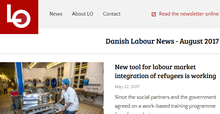

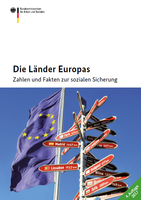
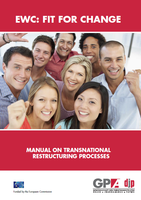
 A negotiation handbook was published at the end of November 2017 dealing with the topics of European and SE works councils. Up to now, similar publications have generally only focused on one of the two subjects, although they have more similarities than differences. At the beginning, the two authors from the chemical workers union (IG BCE) head office describe the requirements for starting the process of establishing a transnational works council. The following chapters subsequently cover the preparation for negotiations, the individual steps for establishing the special negotiating body (SNB) and the key points of an agreement. This legal handbook in pocket format also contains sample requests and check lists. It is addressed to all those who, in the near future have to start negotiations for such an agreement or to those wishing to revise an existing agreement.
A negotiation handbook was published at the end of November 2017 dealing with the topics of European and SE works councils. Up to now, similar publications have generally only focused on one of the two subjects, although they have more similarities than differences. At the beginning, the two authors from the chemical workers union (IG BCE) head office describe the requirements for starting the process of establishing a transnational works council. The following chapters subsequently cover the preparation for negotiations, the individual steps for establishing the special negotiating body (SNB) and the key points of an agreement. This legal handbook in pocket format also contains sample requests and check lists. It is addressed to all those who, in the near future have to start negotiations for such an agreement or to those wishing to revise an existing agreement.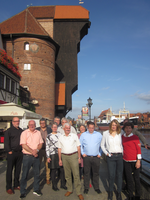 Works council seminar in Poland
Works council seminar in Poland The Zurich European Forum (ZEF) held a meeting in the insurance company's training centre above Lake Zurich from 6 to 8 November 2017. They celebrated an anniversary since the first meeting was held back in 1997. The EWC agreement had already been signed in September 1996 and therefore still remains to this day, not subject to the EU Directive. It was last updated however in February 2016 and amended with guidelines for socially responsible restructuring (see
The Zurich European Forum (ZEF) held a meeting in the insurance company's training centre above Lake Zurich from 6 to 8 November 2017. They celebrated an anniversary since the first meeting was held back in 1997. The EWC agreement had already been signed in September 1996 and therefore still remains to this day, not subject to the EU Directive. It was last updated however in February 2016 and amended with guidelines for socially responsible restructuring (see 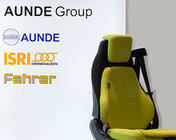 German automobile supplier prepares SE conversion
German automobile supplier prepares SE conversion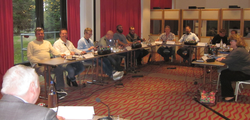 A plenary meeting of Dana's European works council was held in Bad Soden am Taunus (near Frankfurt) from 22 to 24 November 2017. The main topic was the EU General Data Protection Regulation, which will come into force on 25 May 2018 (see
A plenary meeting of Dana's European works council was held in Bad Soden am Taunus (near Frankfurt) from 22 to 24 November 2017. The main topic was the EU General Data Protection Regulation, which will come into force on 25 May 2018 (see  The European works council of Staples Solutions held its meeting from 5 to 7 December 2017 in the company headquarters in Amsterdam (photo). The US group Staples, had sold its European business in 17 countries to the US financial investor Cerberus, in February 2017. With support from the EWC Academy, the EWC addressed the subsequent rapid development of completely new Shared service centers in Eastern Europe, particularly in Poland. The EWC operates under UK law and - after several mergers - can look back on a long history in its forerunning firms, since 1997.
The European works council of Staples Solutions held its meeting from 5 to 7 December 2017 in the company headquarters in Amsterdam (photo). The US group Staples, had sold its European business in 17 countries to the US financial investor Cerberus, in February 2017. With support from the EWC Academy, the EWC addressed the subsequent rapid development of completely new Shared service centers in Eastern Europe, particularly in Poland. The EWC operates under UK law and - after several mergers - can look back on a long history in its forerunning firms, since 1997. As every year in January, a two-day conference is being held in Hamburg, including this time a visit to the new Elbe Philharmonic Hall (photo). The conference will be simultaneously interpreted (German - English).
As every year in January, a two-day conference is being held in Hamburg, including this time a visit to the new Elbe Philharmonic Hall (photo). The conference will be simultaneously interpreted (German - English). The rules for the processing of personal data in the EU are to be unified in 2018.The General Data Protection Regulation will replace all previous national legislations as of 25 May 2018 including the (German) Federal Law on Data Protection which will then no longer apply. A seminar will be held on the subject from 2 to 4 July 2018 in Mainz (Germany). It will include a visit to the Kupferbergterrasse, the world's deepest sparkling wine cellar.
The rules for the processing of personal data in the EU are to be unified in 2018.The General Data Protection Regulation will replace all previous national legislations as of 25 May 2018 including the (German) Federal Law on Data Protection which will then no longer apply. A seminar will be held on the subject from 2 to 4 July 2018 in Mainz (Germany). It will include a visit to the Kupferbergterrasse, the world's deepest sparkling wine cellar.